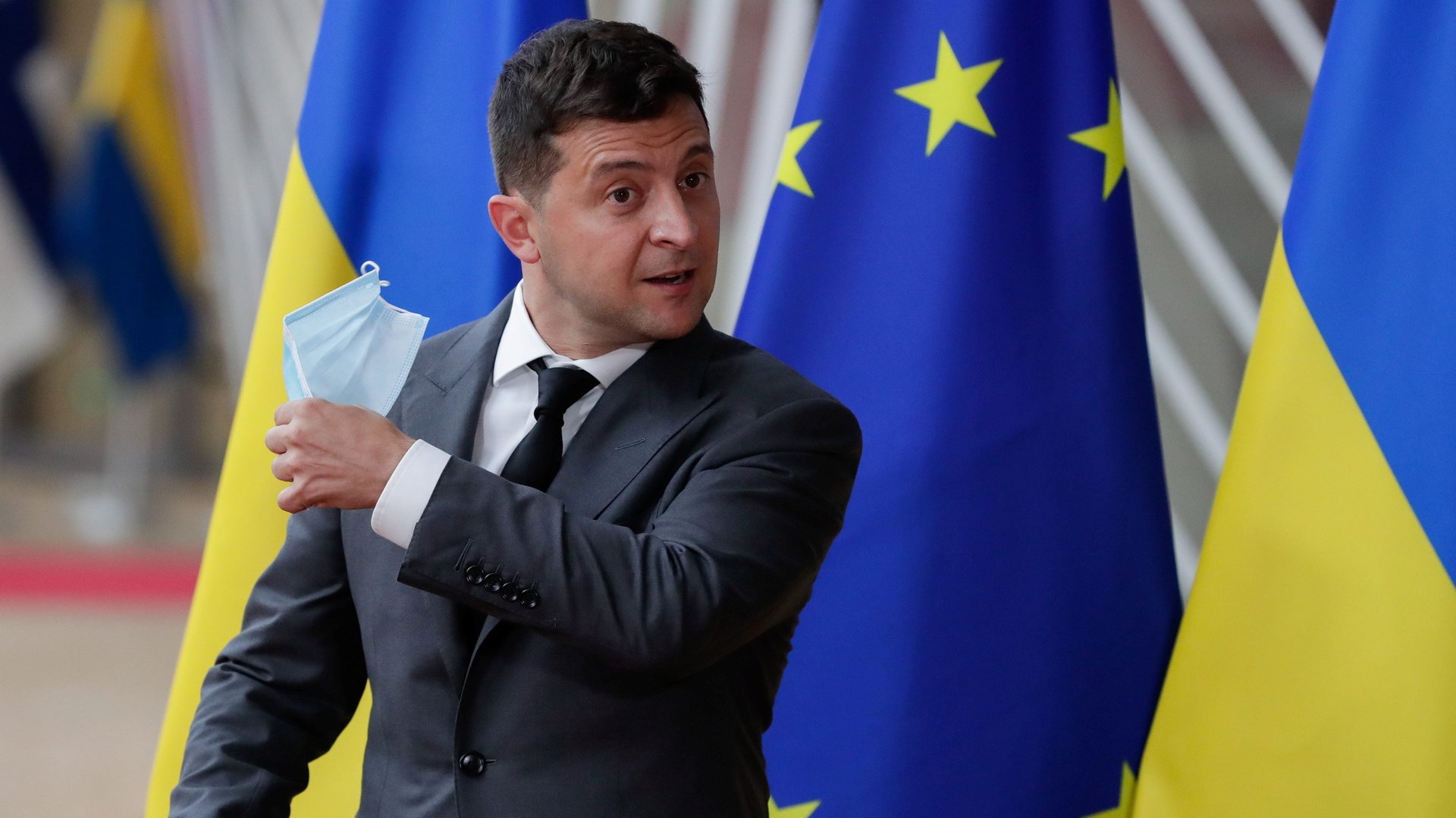The redefinition of masculinity is playing out in the fight between Zelenskyy and Putin
A few days ago, he was just a comedian-turned-president. Now he is the western world’s new hero. Ukrainian president Volodymyr Zelenskyy has risen as the symbol of his country’s resistance to a Russian invasion, the embodiment of the defiant bravery of a people who would rather take up arms and risk their lives than passively succumb to Russia’s aggression.


A few days ago, he was just a comedian-turned-president. Now he is the western world’s new hero. Ukrainian president Volodymyr Zelenskyy has risen as the symbol of his country’s resistance to a Russian invasion, the embodiment of the defiant bravery of a people who would rather take up arms and risk their lives than passively succumb to Russia’s aggression.
Russian president Vladimir Putin has been cultivating enemies around the world for many years, so the international display of support for Zelenskyy and Ukraine isn’t surprising. But this isn’t just a conflict between two countries, or the violence of a superpower usurping a much smaller neighbor, or the battle between democracy and autocracy. It’s a fight between two very different types of masculinity and power.
Masculinity at war
Putin embodies a model of masculine force that much of the modern world is trying to leave behind. He is the kind of “big personality” that has traditionally dominated geopolitical events in the past, and indeed it is hard to imagine the current situation were Russia not led by an aggressive autocrat.
Zelenskyy is a different kind of male leader, one without the strongman charisma that has traditionally been associated with military leadership and wartime courage. As his impassioned addresses to the Russian people and to the European Union display, he is unafraid of showing empathy and vulnerability. He comes across stronger for that.
He is standing up against oppression and authoritarianism, both of which are rooted in misogyny and toxic masculinity. As a result, his—and his country’s—fight fits into the broader cultural movement to push back against and replace patriarchal values.
Putin shot tigers, Zelenskyy danced the cha-cha
The contrast between the Ukrainian leader’s emotional pleas and Putin’s cold belligerence is as stark as the difference in their biographies. Putin is a former KGB agent; Zelenskyy, who studied economics and law, was an actor and comedian. The Russian president barely mentions his two daughters; his Ukrainian counterpart shares happy family photos with his wife and children. Putin is Russian Orthodox, Russia’s most common faith; Zelenskyy is Jewish, making him a member of a minority long persecuted in Russia and the Soviet Union.
Putin shot tigers and whales, and warned bears. Zelenskyy, on the Ukrainian edition of Dancing With the Stars, wowed the country he would one day lead, with impressive moves on the ballroom dance floor.
Putin is 69. Zelenskyy is a comparatively young 44. Putin is cold, Zelenskyy funny.
Putin seats his guests at a five-meter-long table, and appears unconcerned by his country’s suffering. Zelenskyy is getting warm support from leaders around the world, and sends encouraging messages to comfort his fellow Ukrainians.
Given the magnitude of the military gap between the two powers, every day could be Zelenskyy’s last. Whatever his individual destiny, he has managed to rewrite the role of male hero and has shown the world the difference between the command of big, toxic personalities and the leadership of more reasonable men.